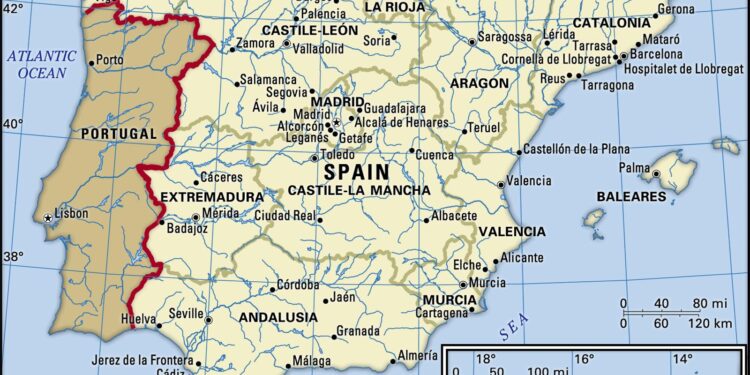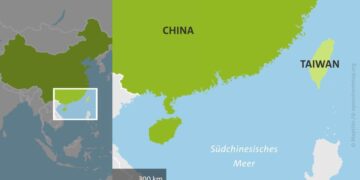Rethinking EU Tariffs on Chinese Electric Vehicles: A Call from Spain’s Leadership
Spanish Prime Minister Pedro Sánchez has recently advocated for a reassessment of the European Union’s proposed tariff measures targeting electric vehicles (EVs) imported from China. His appeal comes at a critical juncture as Europe faces mounting pressure from competitive Chinese automakers entering the EV market with cost-effective alternatives. Sánchez stresses that the EU must carefully balance protecting its domestic automotive industry with embracing global competition, which can ultimately benefit consumers through lower prices and innovation.
Speaking at an economic summit, Sánchez outlined several pivotal considerations:
- Ensuring Market Competitiveness: Safeguarding European manufacturers’ ability to thrive without erecting excessive trade barriers that could limit consumer access to affordable EV options.
- Promoting Environmental Collaboration: Encouraging cooperative efforts between Europe and China to advance sustainable technologies rather than resorting to punitive tariffs.
- Expanding Consumer Choice: Maintaining diverse and accessible EV selections for buyers amid rapid shifts in automotive technology and demand.
This perspective reflects growing unease among EU nations about adopting rigid protectionist policies that might hinder innovation or provoke retaliatory actions, emphasizing instead a strategic dialogue within the bloc.
How Potential Tariff Adjustments Could Reshape Europe’s Automotive Landscape
The introduction or modification of tariffs on Chinese-made electric vehicles carries significant implications for Europe’s automotive ecosystem. Industry stakeholders warn that increased levies may disrupt current market dynamics by inflating prices, thereby dampening consumer demand and complicating manufacturers’ investment plans in EV development. According to recent data from the European Automobile Manufacturers Association (ACEA), EV sales in Europe surged by over 40% in 2023, underscoring how sensitive this sector is to pricing fluctuations driven by trade policies.
The ripple effects extend beyond just vehicle costs; supply chains already strained by global disruptions could face further challenges if tariffs lead to retaliatory measures or sourcing shifts. Key concerns include:
- Pricing Volatility: Adjusted tariffs may force automakers to revise their pricing strategies, potentially passing higher costs onto consumers during an inflationary period across Europe.
- Tougher Competition: Non-European manufacturers might capitalize on tariff-induced gaps or delays within local markets, intensifying rivalry for market share.
- Looming Employment Risks: The automotive sector supports millions of jobs across the continent; instability caused by trade tensions could threaten workforce stability especially in regions heavily reliant on car manufacturing hubs like Germany and France.
A unified approach involving policymakers and industry leaders will be essential to mitigate these risks while fostering resilience amid evolving global trade conditions.
Strategic Pathways Toward Harmonizing EU-China Trade Relations in Electric Vehicles
Sánchez’s proposal invites broader reflection on how the European Union can constructively engage with China regarding electric vehicle imports without compromising economic interests or diplomatic ties. Crafting a balanced strategy involves addressing contentious issues such as subsidies granted by Beijing’s government while promoting mutual growth opportunities through collaboration. Effective approaches may encompass:
- Bilateral Dialogue Enhancement: Strengthening communication channels between EU officials and Chinese counterparts focused specifically on fair trade practices related to green technologies.
- Catalyzing Joint Ventures & Investments: Supporting partnerships between European firms and Chinese companies aimed at co-developing next-generation sustainable mobility solutions benefiting both markets globally.
- Pioneering International Standards Development: Leading efforts within multilateral forums like UNECE (United Nations Economic Commission for Europe) toward harmonized regulations ensuring level playing fields free from distortive subsidies or unfair advantages.
An adaptive tariff framework informed by ongoing monitoring of international trends—such as China’s shifting energy import patterns reported recently—can help maintain competitiveness while minimizing risks of escalation into full-scale trade disputes. Coordinated action among member states remains vital; establishing dedicated committees tasked with continuous evaluation will facilitate agile responses aligned with evolving geopolitical realities.
| Recommended Actions | Intended Outcomes |
|---|---|
| Comprehensive Market Research | Identify sectors most vulnerable or poised for growth under new tariff regimes |
| Formation of Trade Advisory Panels | Facilitate ongoing policy discussions incorporating diverse member state perspectives |
| Engagement with Private Sector Leaders | << td style = " text - align : left ; " > Integrate industry insights into policymaking processes ensuring practical relevance















